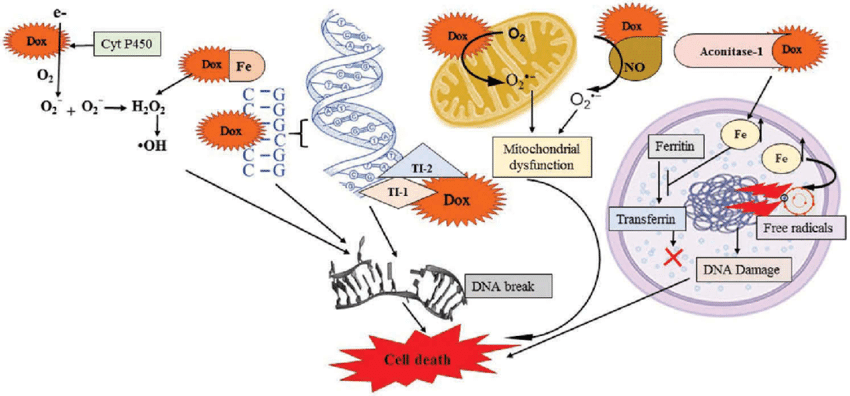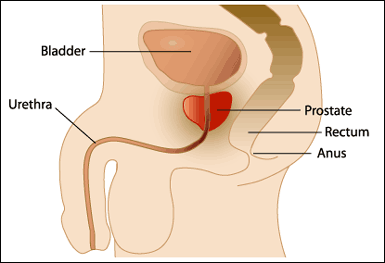Physiotherapeutic implications of exercise prescription in post cancer treatment to reduce Doxorubicin (DOX)-induced cardiotoxicity
One of the complications of cancer treatment is the loss of weight. Some of this occurs due to the loss of appetite but also as a result of reduced volition to exercise. The therapeutic benefits of exercise include the improvement in muscle mass, which is important for maintaining a reservoir of protein, for the immune system. Additionally, the benefits of strength and endurance are reduced fatigue and enhanced functional capacity. Furthermore, improved oxidative capacity, through exercise, maintains healthy mitochondria, reducing oxidative stress. Animal models suggest that tumour bearing mice who are wheel exercised, have improved functional indices of cachexia, without mitigating tumour number or size (Brandon BN et al 2020, Med Sc Sp Ex, 52, 11, 2320-2330). These results weren't dependent upon exercise duration, but rather on exercise threshold.
The use of Anthracylcines for chemotherapy have been commonly found to have cardiac complications. It is thought that a reduction in autophagy may be responsible. Autophagy is the process whereby lysosomes remove damaged cell material such as folded proteins, damaged lipids, dysfunctional organelles and even mitochondria. DOX induced cardiotoxicity may be due to dysfunction of this lysomal regulation.

Evidence suggests that this may be due to the accumulation of Reactive Oxygen Species (ROS), especially NOX-2 (NADPH oxidase). Exercise has been shown to improve the bodies ability to 'mopp up' ROS. However, the period between the diagnosis and onset of chemotherapy is frequently short. Given the harrowing nature of cancer treatment, it is frequently unrealistic to ask someone to commence an exercise regime during this time. However, there has been a long held belief that life long exercise may not prevent cancer but may improve the persons tolerance to the side effects of treatment.
Another, intriguing suggestion is that post treatment exercise could reduce the risk of cardiotoxicity. Lee et al (2020, Med Sc Sp Ex, 52, 1, 25-36) examined this notion in animals (mice). They found that exercise prevents DOX-induced tissue damage and apoptosis.Their findings included attenuation of extensive cytoplasmic vascuolization and loss of myofibrils, reduced cleavage of CASPASE 3 and reduced elevation of proapoptotic protein BNIP3. Finally a reduction in chemotherapy induced upregulation of the % of TUNEL cells was also observed.
Exercise intervention also had profound effects on left ventricle autophagy with increases of LC3-II in parallel with p62 reduction. Additionally, exercise promotes mitochondrial turnover (mitophagy), as well as preventing oxidative damage by modulating NOX subunits and lowering IL-1Beta.
This investigation by Lee et al (2020) demonstrates for the first time that the negative impact of multiple DOX treatment cycles can be attenuated through a post treatment exercise regime (albeit in mice). Extrapolation to humans would suggest that a graded exercise regime over a 4 -12 week period, including 4 weeks of pre-conditioning may be a useful adjunct in improving recovery from chemotherapy.

Alternatively, Kirkham et al (2020, Med Sc Sp Ex, 52, 2, 278-286) have recommended 'chemotherapy-periodised' exercise to accommodate for cyclical variation in fatigue. Furthermore, suggestions have been made that exercise, such as walking, reduces the rate of recurrence by up to 57% in some cases of cancer, such as after radical prostatectomy (Richman et al 2011, Cancer Res, 71, 11, 3889-95; referenced by Swain et al 2020, Med Sc Sp Ex, 52, 2, 296-302) . A meta-analysis of individual patient data of 31 RCT's found significant beneficial effects of exercise on fatigue in patients with cancer. Moreover, supervised exercise intervention was found to be superior to unsupervised exercise (Van Vulpen et al 2020, Med Ex Sp Sc, 52, 2, 303-314). Further, some of the calming effects of exercise may also have a therapeutic effect, which hasn't been covered here.
Uploaded : 22 Feb 2020
Updated : 24 November 2020
Banned by Google Adwords as they reckon physiotherapists aren't allowed to discuss exercise in people receiving cancer treatment!!!! Go Figure!!!!???




